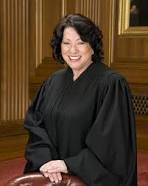
Washington, D.C. – In two related rulings, the United States Supreme Court addressed the standards for granting and reviewing awards of legal fees in patent infringement lawsuits.
In the first matter, Octane Fitness, LLC was sued by Icon Health & Fitness, Inc. At issue was Icon’s contention that the use of a particular component in elliptical fitness machines constituted patent infringement. After Octane prevailed, it sought $1.8 million in attorneys’ fees. The district court denied these fees and an appeal was taken on the issue.
In its review, the Federal Circuit applied the rule from Brooks Furniture Mfg., Inc. v. Dutailier Int’l, Inc. In Brooks Furniture, the Federal Circuit had defined an “exceptional case,” which would warrant an award of legal fees, as one that either involves “material inappropriate conduct” or is both “objectively baseless” and “brought in subjective bad faith.” It then rejected Octane’s assertion – that attorneys’ fees were appropriate because Icon had asserted an unreasonable claim construction – as not falling within the Brooks Furniture definition and declined to overrule the district court’s denial of attorney’s fees.
In Octane Fitness v. Icon Health & Fitness, Case No. 12-1184, the Supreme Court reversed and remanded. Justice Sotomayor, writing for a unanimous court, said that the Federal Circuit’s interpretation of 35 U.S.C. §285 was overly rigid and “superimposes an inflexible framework onto statutory text that is inherently flexible.” Instead, the Court held that “an ‘exceptional’ case is simply one that stands out from others with respect to the substantive strength of a party’s litigating position (considering both the governing law and the facts of the case) or the unreasonable manner in which the case was litigated.
The Court also revised the standard of proof that had been required by the Federal Circuit. In Brooks Furniture, the Federal Circuit had held that §285 requires that parties establish the “exceptional” nature of a case by “clear and convincing evidence.” The Supreme Court opined that such a high standard was not supported by the statute. Instead, as patent infringement litigation is generally governed by a preponderance-of-the-evidence standard, that standard was also appropriate for the award of attorneys’ fees.
The second patent infringement litigation decided by the Supreme Court pertained to a patent infringement lawsuit filed by Allcare Health management Systems. After Allcare lost in the district court, the district judge awarded $5 million in attorneys’ fees to Highmark. The Federal Circuit reviewed the district court’s judgment de novo and reversed the award.
In Highmark v. Allcare Health Management Systems, Case No. 12-1163, the Supreme Court reversed the Federal Circuit’s reversal, holding that, in light of the traditional framework of review, the Federal Circuit should be more deferential to the trial court on the issue of the award of fees. The Supreme Court stated, “Traditionally, decisions on ‘questions of law’ are ‘reviewable de novo,’ decisions on ‘questions of fact’ are ‘reviewable for clear error,’ and decisions on ‘matters of discretion’ are ‘reviewable for abuse of discretion.'” The determination of whether a case should be considered to be “exceptional” for the purposes of awarding attorneys’ fees is a matter of discretion. As such, it is properly reviewed not de novo but instead for abuse of discretion.
Practice Tip: Under U.S. patent law, a trial court may award attorneys’ fees in case of patent infringement litigation that it deems “exceptional.” These Supreme Court rulings revisiting how “exceptional” is defined may benefit Google, Apple and other large technology companies, which are often targets of questionable patent infringement lawsuits, as trial judges will now have greater latitude to award attorneys’ fees in those cases in which they determine that the conduct of the losing party “stands out from others.”
The opinions were delivered by Justice Sonia Sotomayor (pictured) in the United States Supreme Court.
 Indiana Intellectual Property Law News
Indiana Intellectual Property Law News

